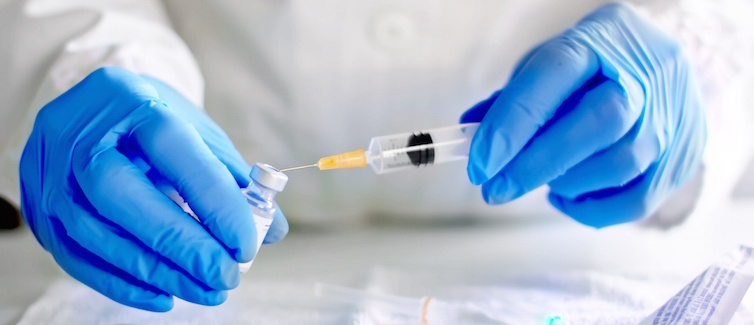Disclaimer: At UPMC HealthBeat, we strive to provide the most up-to-date facts in our stories when we publish them. We also make updates to our content as information changes. However, education about COVID-19 can shift quickly based on new data, emerging variants, or other factors. The information in this story was accurate as of its publish date. We also encourage you to visit other reliable websites for updated information, including the Centers for Disease Control and Prevention (CDC), Food and Drug Administration (FDA), and your state and local governments.
Two of the COVID-19 vaccines authorized by the FDA involve the use of nanoparticles. But what exactly is a nanoparticle, and how are they used in the vaccines?
Never Miss a Beat!
Subscribe to Our HealthBeat Newsletter!
Thank you for subscribing!
You can now select the specific newsletters you'd like to receive.
You are already subscribed.
Subscribe to more newsletters in our email preference center.
Sorry, an error occurred. Please try again later.
Get Healthy Tips Sent to Your Phone!
Extremely Tiny Particles: Nanoparticles, Explained
The term “nano” refers to the size of a nanometer, which is one millionth of a millimeter. To get a sense of how small a nanometer is, consider that a strand of human hair is about 80,000 to 100,000 nanometers wide.
Nanotechnology refers to scientific work with particles between 1 and 100 nanometers in size. Some people automatically think of machines or microchips when they hear nanotechnology. However, much of nanotechnology actually deals with atoms and molecules, including organic ones found naturally in the body.
Nanoparticles in COVID-19 Vaccines
Two COVID-19 vaccines that use nanoparticles are messenger RNA (mRNA) vaccines. These vaccines contain a strand of genetic code that provides instructions for building a protein that’s found on the coronavirus. When cells take in this genetic code, they build the protein.
When the immune system sees the protein, it begins building antibodies against it that help the immune system fight the coronavirus. After the body has built up an army of antibodies, it can fight off a COVID-19 infection before it causes disease.
However, mRNA is very fragile on its own. If injected into the body as a strand by itself, it would degrade before it ever reached any of the body’s cells. Therefore, researchers protect the genetic material with a lipid nanoparticle.
Lipids are molecules that do not dissolve in water, such as oils and fats. A lipid nanoparticle is a protective droplet containing the mRNA that will not dissolve in the body’s fluids. This nanodroplet preserves the mRNA long enough to carry it into the body’s cells so they can begin making the proteins.
Nanoparticles in Other Medicine
The use of nanoparticles and even RNA is not new in medicine. Lipid nanoparticles already help protect molecules in other drugs reach the cells they need to reach without breaking down on the way.
Several chemotherapy and cholesterol-lowering drugs use nanoparticles to protect the active chemicals that treat people. Viruses themselves are naturally occurring nanoparticles, so it makes sense that researchers would turn to nanotechnology to fight a virus.
Sources
National Center for Immunization and Respiratory Diseases (NCIRD), Division of Viral Diseases. Understanding mRNA COVID-19 Vaccines. Centers for Disease Control and Prevention. Link
National Nanotechnology Initiative. Size of the Nanoscale. Link
National Nanotechnology Initiative. What is Nanotechnology? Link
About Adult Congenital Heart Disease Center
The UPMC Adult Congenital Heart Disease (ACHD) Center is a joint program between UPMC Children’s Hospital of Pittsburgh and UPMC Heart and Vascular Institute. We provide long-term care for adolescents, young adults, maternal patients, and adults with congenital heart disease. Our goal is to provide complete care from your childhood all the way through your life. Our team of experts has a wide knowledge of heart conditions.
